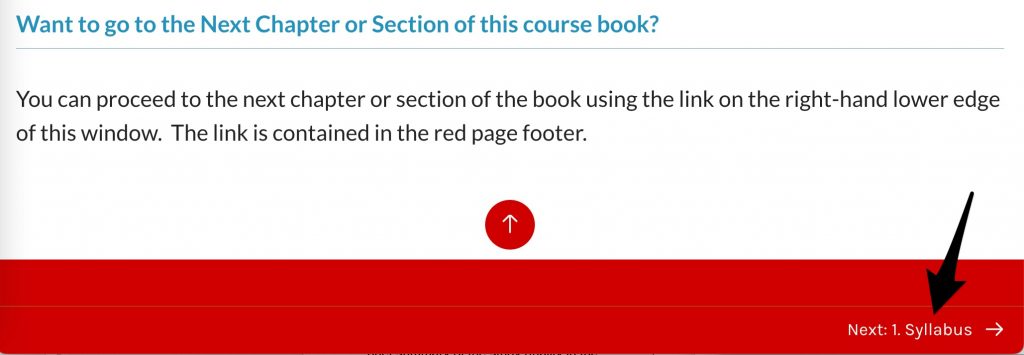Welcome to “Introduction to Drug Information” and to UNMC!
Instructor Introduction
Sean N. Avedissian, Pharm.D., M.Sc.
- PDD 3014
- 402-836-9787
- sean.avedissian@unmc.edu
Cynthia M. (Cindy) Schmidt, M.D., M.L.S.

My name is Cindy Schmidt. I am the library’s liaison to the College of Pharmacy. I will meet with 1-3 students at a time to teach them how to use Zotero to produce AMA 11th style in-text citations and bibliographies in their monograph assignments.
Librarianship is a second career for me. I graduated from medical school in 1986 and earned my masters degree in library science in 2000. You can call me Cindy (the librarians at UNMC generally go by their first names), or you can call me Dr. Schmidt, whichever is more comfortable for you.
Please, do contact me if you have any questions or need help. I can provide help on most aspects of the class. I enjoy working with students, and enjoy one-on-one sessions or small group work even more than classroom teaching.
- I plan to spend the class hours, during the first half of the course, in PD 1002. I will be providing Zotero training during this time.
- I will usually be available on Mondays (outside of class time) in PDD 2001C (in the Office of Experiential Programs suite).
- Phone: 402-650-5056
- E-mail cmschmidt@unmc.edu
- Make an appointment to meet with me via Zoom using the scheduling tool at: https://outlook.office365.com/owa/calendar/CindySchmidt@univnebrmedcntr.onmicrosoft.com/bookings/
Overview
I’m going to start by explaining the objectives and structure of the course, the purpose of the major course assignments, and how the various scheduled activities contribute to completion of the major assignments. Please, don’t skip this section.
Course Objectives
To be an effective pharmacist, you will also need to have had practice identifying your own and others’ information needs, skill in using the resources that can address these needs, and practice formulating answers to questions that have been posed. This course is dedicated to preparing you for these “lifelong learning” and “information provision” aspects of pharmacy practice.
The figures below outline the major course objectives and the way information will be provided, practice will be encouraged, and assessment will take place for each of these objectives.
Objective 1. Identify the tertiary drug information resource most likely to meet a given information need and use the resource effectively to find needed information.
Information Provided During:
-
- Lessons focused on resources during 1st quarter of the course.
- Tutorials and assignments.
Practiced during:
-
- Online tutorials and ‘lab’ assignments which will guide you as you use resources.
- Weekly resource review
- Personal study for quiz and exam
Assessment:
-
- Resources Quiz
- Mid-Term Exam
Objective 2. Use advanced literature search techniques to conduct and troubleshoot PubMed searches focused on drug- and pharmacy-related topics.
Information Provided During:
-
- Lessons during 2nd quarter of the course.
- Tutorials and assignments.
Practiced during:
-
- Online tutorials which will guide you as you conduct searches.
- Correction sessions
- Personal study for exam
Assessment:
-
- Mid-Term Exam
- Final Search Assignment.
Objective 3. Synthesize information from several sources to produce a succinct written monograph and oral presentation concerning an FDA-approved drug.
and
Objective 4. Use appropriately formatted in-text citations and bibliographies to document the sources of the information included in a written document.
Information Provided During:
-
- During week 1 you will pick a drug for your monograph topic from the list of approved topics.
- Lessons during week 1 and 8 and the Zotero training will help you identify sources for your monograph and will introduce you to the citation style you must use.
- Video providing scientific presentation tips
Practiced during:
-
- Zotero training will familiarize you with a tool that can make formatting citations and references easier.
- Preparing monograph assignment (due Wednesday before beginning of 2nd half of course)
Assessment:
-
- Written monograph assignment
- Oral monograph presentation
Objective 5. Provide basic information about 60 FDA-approved drugs
Information Provided During:
-
- You and your classmate’s monograph presentations during the 2nd half of the class.
Practiced during:
-
- watch the assigned monograph presentations for the week, study information provided
Assessment:
-
- weekly quizzes on previous week’s monograph presentations
More Detail on Assessments:
The point-earning activities are listed in the excerpt from the syllabus shown below.
Lab Assignments 45 points
Online Drug Information Resources Quiz 25 points
Examination 1 (mid-term) 150 points
Final Search Assignment 50 points
Drug monograph-related assignments(5) 125 points
Oral monograph presentation and questions 50 points
A. Presentation – 40 points
B. 10 Questions – 10 points
Monograph Score 50 points
Total Points 495 points
Lab Assignments differ from the remaining point-earning activities listed above:
- The lab assignments are pass/fail. They are intended to make you practice rather than assess your final skill level.
- Due dates are needed to keep the class moving along together. As long as 95% of the class is submitting assignments by the due date, it’s not a problem if the others are up to a week late. If a longer delay is needed, an excuse must be submitted to the instructor.
- If you fail a lab initially, you can rework and resubmit the lab and still earn all the points. Watch your e-mail and your grades and comments in Canvas for indications that you need to re-do and re-submit a lab.
- Some of your labs will be corrected by you and a fellow student. You will submit your initial version and later submit your corrected work.
- Almost all labs contribute to completion of the major course assignments, the monograph assignment (MA) or the final search assignment (FSA), in some way. The labs are marked accordingly in the course schedule.
- After you have completed all FSA-related labs and correction sessions, you should have a complete final search assignment ready to submit.
Major Assignments/Quizz/Exam
- The major assignment due dates are firm deadlines.
- Unexcused late submission will result in a 10 % point deduction for each day late. If an assignment is more than 3 days late, the instructor may refuse to accept it (resulting in a zero point grade).
Organization of the Class Schedule
The course is split in half.
- The first half of the course is taught using an online, asynchronous approach (except for the in-person mid-term exam).
- Lessons and “Lab” assignments include tasks that will help you complete the FSA and MA and/or learn material needed for the quiz and exam.
- Lab correction videos.
- Will go over students’ typical problems with the assignments so that you learn to troubleshoot.
- Most weeks, you will correct your own and a classmate’s FSA-related lab work and will submit your corrected FSA searches.
- Resources Quiz
- Mid-term Exam
- The second half of the course is taught using an in-person, class session approach.
- You will meet in PDD 1002 on Monday from 1 PM – 3 PM and Tuesday from 2 PM – 3 PM.
- Includes
- submitting your own written monograph assignment and monograph-drug-related questions (due the Fri. before the powerpoint presentations begin).
- presenting your own monograph powerpoint to the class
- viewing your classmates presentations
- taking weekly quizzes on the previous weeks presentations.
Why is the first half of this course online?
You might wonder why I’m using an online, asynchronous approach to a class. I’m taking this approach because it allows you to do the work when you have access to a desktop or laptop computer. Tablet computers are not optimal for most of the assignments for this course and will not work at all for at least one of the assignments.
Expected Time Commitment
- You should expect to spend a minimum of 3 hours a week going through the learning materials and assignments for this course.
- The week’s assignments are due the following week on Monday at midnight (for example, week 1 assignments are due on the Monday of week 2 at midnight).
- Some of the assignments are quite lengthy — just as real life information seeking efforts are sometimes quite complex and lengthy.
- Remember, we want to hear your questions and provide help as needed! Please, do let us know if if you spot any content or technical problems in/with the class materials.
The course syllabus and schedule are available in the next two chapters of this Pressbook
- The course syllabus is a static document.
- The course schedule may change in response to unexpected circumstances. Please, pay attention to the course announcements in Canvas.
Important information about the book layout:
- Chapter links appear in the browser footer. Click the left-hand link to go back to the previous chapter and the right-hand link to go forward to the next chapter (see arrow pointing to the footer in the figure below).

- A contents menu is available above the chapter text. You can use this menu to jump between distant chapters. The “Contents” view toggles. Click to open the “Contents” panel or show the chapters in a section, re-click to close the contents panel or hide the individual chapters in a section.
Questions, Problems, Text Errors?
Before you leave, …
- Do you have any questions or do you feel that clarification of some aspect of the materials would be helpful?
- Have you noticed any errors or problems with course materials that you’d like to report?
- Do you have any other comments?
If so, please contact Dr. Avedissian
- 402-836-9787
- sean.avedissian@unmc.edu

